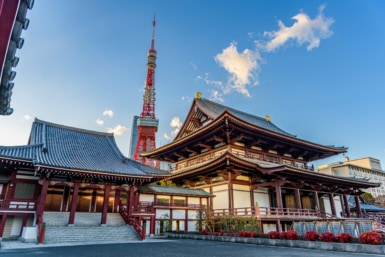Longtime entrepreneur Ray Pedersen has spent the majority of his adult life bringing business ideas to life in the form of various companies. Currently he heads Slate, an executive search firm with offices in four major world cities, and BC Media Group, a multimedia firm and publisher of Tokyo Weekender. A longtime Tokyo resident and business leader, he is closely involved with the workings of both companies, and strives to offer his clients the very best product and service for their money.
How long have you been in Japan?
I’ve been in Japan since 1989, although not continuously. I attended university and worked for a few years in Canada in between.
What is your background and why did you decide to start your business?
I’ve always known that I wanted to run my own business. Even as a kid I would walk around my neighborhood knocking on doors and offering to sweep people’s driveways or weed their gardens. I started my first real business when I was 24. It was a building materials consolidations operation, through which I collected building materials from North America and sold them to builders in Japan. I never made much money, but it was an enormously educational experience on many levels.
Can you tell us a bit about your company?
I run a couple of different ones. Slate is an executive search firm that has offices in Tokyo, Hong Kong, Manila, and a small bureau in Brazil. We place professional managers into multinational companies. My wife Pam handles the day-to-day operations of Slate these days. I also run Bulbous Cell Media Group, which publishes Weekender and does other multimediarelated things, such as web design and programming, graphic design, video production and corporate branding.
What are the Japan-specific challenges your business faces here?
I’ve done business in numerous countries to date. Japan is actually one of the easier ones. There is generally a high level of trust and organization in Japan, and the bureaucracy is palatable. In terms of specific impediments to business in Japan, I would say that Narita is a big one.
What kind of advice would you give to aspiring professionals and entrepreneurs?
Start with a plan. The most successful professionals and entrepreneurs I have had the pleasure to come into contact with are usually very clear about what their objectives are and what they need to do in order to achieve their goals. Plan your work, work your plan, and start with the end in mind. The other piece of advice I would give would be to go for it. What’s stopping you?
What are the best and worst decisions you’ve made doing business in Japan?
Good question, and one with a million answers. One decision that ended in a great sense of contribution was building a research center in Manila, where we have employed more than 300 people over the years. Being in the information business, it is entirely feasible to provide people in less developed economies with mainstream access to opportunities in developed economies such as Japan. Some people think that outsourcing is something that takes jobs away, but I think of it as something that creates opportunities where they are needed most. In terms of worst business decisions, I think a lot of things were exposed during the Lehman shock of the last 18 months. Most of the pain came from things connected to excessiveness and complacency. It was a tough year, but I think most entrepreneurs would agree that it has caused a heightening of senses and attention to details.
What are your plans for your business in the future?
Our plans for BC Media are to be a pervasive English media source in Tokyo. Media is at a fascinating juncture in history. Being in the media business in 2010 is all about aggregation of content services and distribution to a wider and more global audience. Anything is possible and the future is completely open. The human capital business is at a fascinating juncture as well. The industry is still relatively new, and there is still a lot of turf to be had. We intend to continue growing our regional presence and to work with the same clients in numerous countries.
What do you do in your spare time?
Spare time? Usually I hang out with my kids and wife or socialize with business-minded people.
External Link:
Bulbous Cell Media Group
Updated On July 17, 2013








